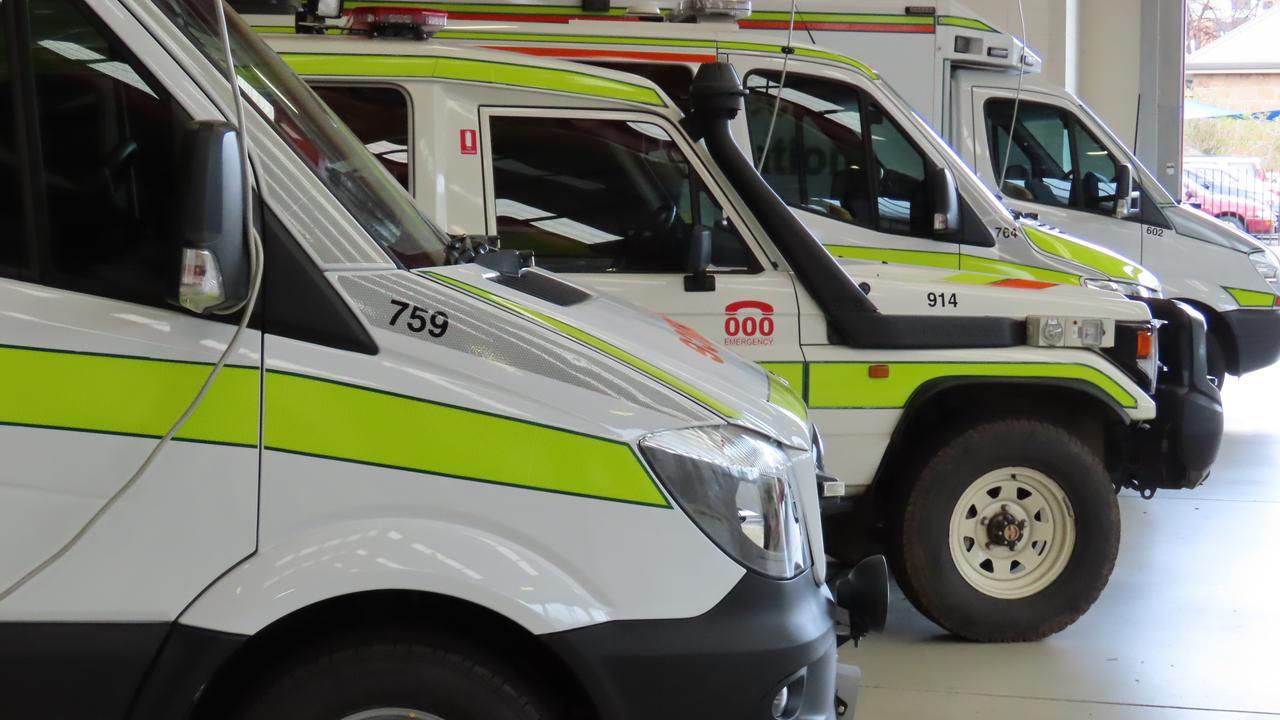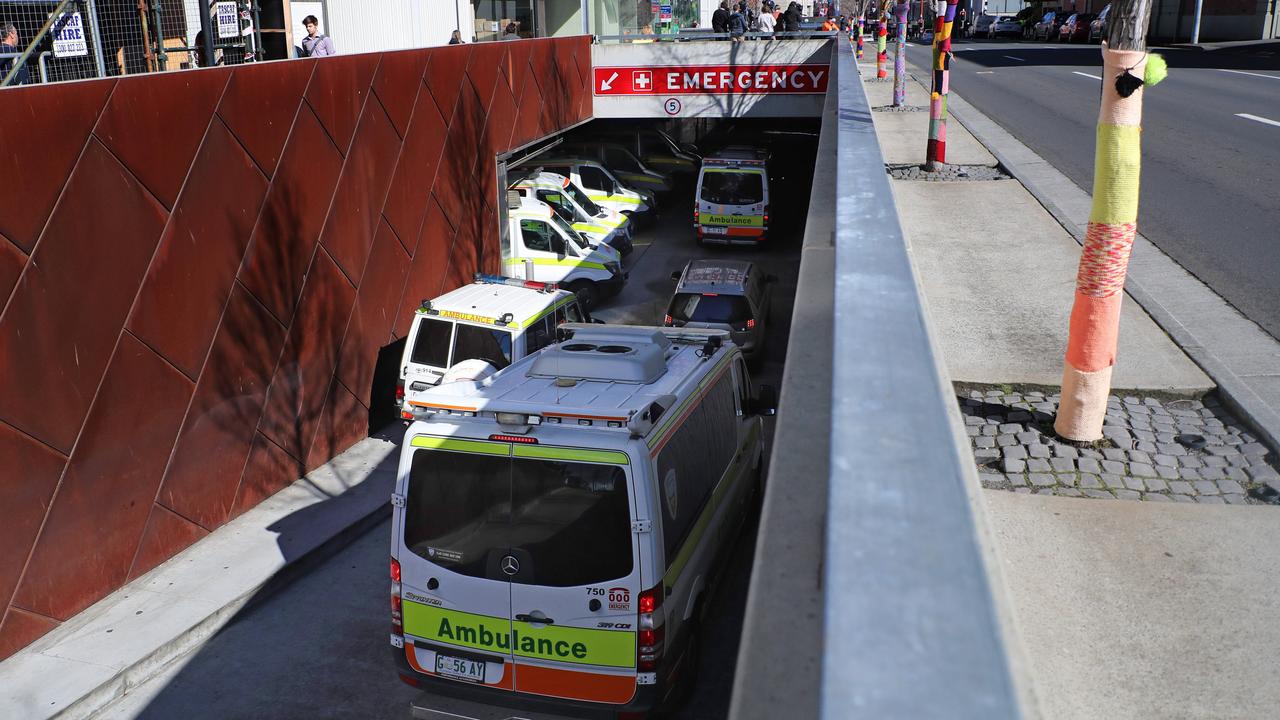Tasmanian paramedics tell of impact of ambulance ramping on health staff, patients
Tasmanian paramedics have detailed the harrowing psychological impact of ambulance ramping on healthcare workers who routinely witness seriously ill patients being left for hours in pain and distress.

Tasmania
Don't miss out on the headlines from Tasmania. Followed categories will be added to My News.
Paramedics have detailed the harrowing psychological impact of ambulance ramping on healthcare workers who routinely witness seriously ill patients being left for hours in pain and distress.
Further testimony from ambulance officers was released by the Select Committee on Transfer of Care Delays (Ambulance Ramping) on Thursday.
Ambulance ramping is a term which refers to the practice of patients being cared for by paramedics in ambulances or dedicated hospital waiting areas before their admission when emergency departments are too busy to see them.
Among the submissions was a paramedic who said ramping was taking its toll on all involved.
“The helplessness and hopelessness of knowing that the patient’s long-term health outcomes and life expectancy are being altered due to ramping is the stuff of nightmares and causes immeasurable psychological harm,” they wrote.
“Personally I have experienced more trauma while ramped than I will ever witness doing my actual job in an ambulance serving the community.”
The paramedic recalled an elderly man being told he would shortly die.
“He was then asked in front of a crowded ramping area what he would like to happen,” the submission said.
“This end-of-life care conversation was in the open, not even a curtain available to give any semblance of privacy. We helplessly bore witness to his and his loved one shock and distress.”
Another said a lack of access to pain relief was leaving patients suffering distress and indignity.

“In the case of the elderly patient with a hip fracture I arrived to find the patient lying in urine, and in severe pain … the patient had been ramped for 17 hours,” the submission said.
“His care had been transferred between more than 10 paramedic crews in this time and this had directly led to undignified and substandard patient care with significant periods without pain relief.”
And another paramedic told the committee that things were not improving.
“Every time my colleagues and I talk about how this is the worst we have ever seen ramping, and subsequent patient outcomes, it surprises us by getting worse still.”
“It is a known fact among my colleagues that undoubtedly people die in our community that
otherwise may have lived in if an ambulance was sent when we first received the 000 call – if that ambulance wasn’t ramped and was able to respond.”
Greens Member for Clark Vica Bayley said the testimony was moving.
“It’s incredibly distressing to read so many awful situations experienced by Tasmanian patients and healthcare workers.
“Tragically, we know the submissions to the inquiry are only the tip of the iceberg, with an average of nearly 2000 people now subjected to ramping every month in Tasmania.
“The Greens offer our deepest thanks to all those who bravely shared their story about ambulance ramping with this inquiry, and we are committed to doing everything in our power to make sure the government takes notice and finally starts taking action.”
Committees will hold further public hearings on a date to be fixed.
More Coverage
Originally published as Tasmanian paramedics tell of impact of ambulance ramping on health staff, patients









